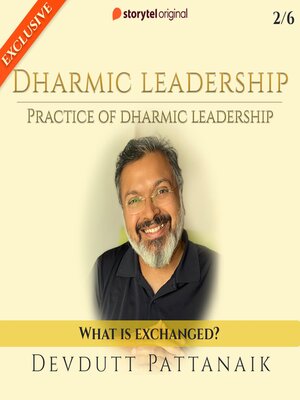EPISODE 2
audiobook (Unabridged) ∣ What is Exchanged? · Dharmic Leadership with Devdutt Pattanaik
By Devdutt Pattanaik

Sign up to save your library
With an OverDrive account, you can save your favorite libraries for at-a-glance information about availability. Find out more about OverDrive accounts.
Find this title in Libby, the library reading app by OverDrive.



Search for a digital library with this title
Title found at these libraries:
| Library Name | Distance |
|---|---|
| Loading... |
Having understood the exchange, let us understand what is exchanged... In nature, plants and animals seek food in order to survive. Plants and animals also need power, to get food, and not become food. An animal without power will not eat and be soon eaten by others. Animals increase their power by collaborating with each other in herds, packs, and hives. Competition helps the stronger and faster get a greater share of the food. Collaboration helps the group; competition helps the mighty. Culture exists to provide food and power to humans. But for humans, food and power take very complex forms, as hunger and insecurity are fueled by imagination. For humans, that which satisfies human hunger is Lakshmi, the goddess of food and fortune, whose name is derived from the word laksha, or target. She is what we value and hoard the most. Durga is the goddess of security and power. Like Lakshmi, she too can be stored, stolen, and shared. Her name is derived from durg, or the fortress. Then there is Saraswati, goddess of knowledge, who helps humans discover, invent, and innovate new forms of food, and security. In this chapter, we will focus on the goddesses, Lakshmi, Durga, and Saraswati, who embody resources, power, and knowledge that humans exchange in the market.







